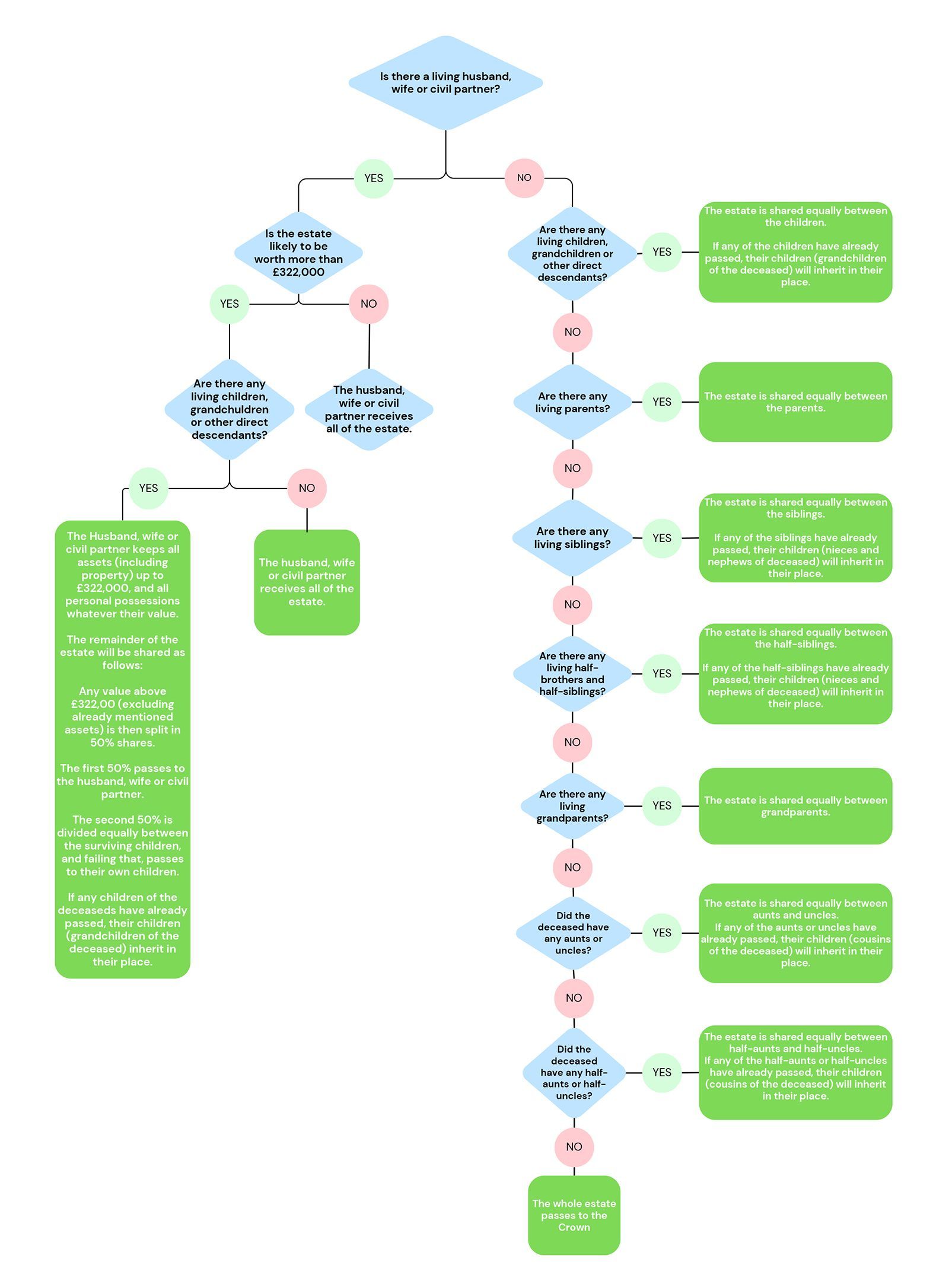Intestacy – Dying Without a Valid Will
April 30, 2024
What is intestacy?
Intestacy or dying intestate is when a person passes away without writing a Valid Will.
This then means that the deceased’s assets pass under the rules of intestacy. The Rules of intestacy can have big implications for anyone but especially unmarried couples, blended families, and those with few relatives.
It is always best practice to have a Will in place to ensure your assets are ringfenced for the intended beneficiaries, otherwise you could be leaving your loved ones in vulnerable positions.
The workflow below explains how inheriting under the rules works:


December 17, 2024
The attestation clause of a Will is the clause that explains the circumstances in which the Will has been signed and witnessed. Whilst including a form of attestation clause is heavily encouraged, it is not a legal requirement, but we would always recommend one being included as it provides evidence that these were the wishes of the Testator, and the Testator had intent of making the Will as well as knowledge and approval of its contents. Ensuring the Will is signed and witnessed correctly is of upmost importance, as any minor error can have a major affect the validity of the Will. There are two focal points from the Wills Act (1837), that I want to touch on as they're relevant to the correct attestation of a Will.

April 30, 2024
If you have minor children, a guardianship appointment is one of the most important clauses to be put within your Will. A guardianship appointment will state you would look after your minor children if you were to pass away. If there is no guardianship appointment made, there is a strong possibility that the children would be placed in temporary foster care while local authorities decide who would be the best people to look after them. When deciding who to nominate as guardians, it is important to consider the following: Would they be able to look after your children Do they have the space Are their beliefs/values similar to yours Their location and would the children need to move A guardianship appointment can only be made by a person who has parental responsibility, this can be a confusing area, so this will be discussed during your initial consultation and advice around this area would be provided.
Want more information?

© 2025
Social Fellow
Latest news

December 17, 2024
The attestation clause of a Will is the clause that explains the circumstances in which the Will has been signed and witnessed. Whilst including a form of attestation clause is heavily encouraged, it is not a legal requirement, but we would always recommend one being included as it provides evidence that these were the wishes of the Testator, and the Testator had intent of making the Will as well as knowledge and approval of its contents. Ensuring the Will is signed and witnessed correctly is of upmost importance, as any minor error can have a major affect the validity of the Will. There are two focal points from the Wills Act (1837), that I want to touch on as they're relevant to the correct attestation of a Will.

